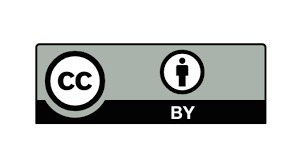Proyecto de vida de los adolescentes del área metropolitana de Cúcuta (zona rural escolar corregimiento de san Faustino)
Proyecto de vida de los adolescentes del área metropolitana de Cúcuta (zona rural escolar corregimiento de san Faustino)
Main Article Content
This work is part of the study of the human condition in its many dimensions that allow personal and professional development, with life-project being a tool which seeks to guide our personal growth, through the identification of those goals that we want to achieve and the capabilities we own. In educational institutions and other sociocultural contexts in the metropolitan area of Cucuta, a high percentage of adolescents with a gap in the projection of themselves is perceived, likely caused by the lack of self-knowledge, the direct and indirect influence of family, social, economic and cultural factors from the region which for so long has remained geographically isolated from national and international context, due to its border condition. To develop this goal we rely primarily on the theory of hierarchy of human needs [1] , humanistic psychology [2] and life projects and strategic planning staff [3] among others. The methodology is part of the so-called descriptive research based on characterization of phenomena or situations indicating the most peculiar or differentiating facts. Results are shown and it is concluded that all adolescents look for self-realization, as since their school stage they start recognizing the importance of setting goals and set them in a plan even if it is not written or structured, while identifying factors influencing in construction of that plan.
Downloads
Publication Facts
Reviewer profiles N/A
Author statements
Indexed in
- Academic society
- Universidad Francisco de Paula Santander
- Publisher
- Universidad Francisco de Paula Santander
Article Details
A.H. Maslow, “A theory of Human Motivation”, Psychological Review, no. 50, pp.370 396, 1943.
M.V. Besora, “La psicología ‘humanista: historia, concepto y método”. Anuario de psicología, vol. 34, pp.7-46, 1986.
T.R. Vargas, Proyecto de vida y planeamiento estratégico personal, Lima, Perú. 2005
F. Savater, Las preguntas de la vida. Barcelona: Mc Graw Hill, 1999, pp. 49.
O. D` Ángelo, “Proyecto de vida como categoría básica de interpretación de la identidad individual y social”, Revista Cubana de Psicología, vol. 17, no. 3, 2000
J. N. Ramón Suárez, Formación de competencias para salir de la pobreza en modelos educativos rurales, Buenos Aires: CLACSO, 2010, pp. 132.
R. Cifuentes and B. Gómez, (2012), Plan de vida [Online]. Available: http://www.redseguraclinicas.com/mujeres1/mujeres-gu/index.php?option=com_ content&view=article&id=146:plande- vida&catid=49:noticias&Item id=169.
O. Reina, “Los proyectos futuros de la motivación: una mirada desde la psicología”, Contribuciones a las Ciencias Sociales, vol. 1, no. 1, p. 1, 2010.
P.J. Santos and P. Olmos, “Orientaciones para la intervención ante los factores de riesgo asociados al fracaso escolar de los jóvenes en la educación secundaria obligatoria”, Revista Iberoamericana de Educación, no. 58/3, 2012.
W. Verdugo, (2010, octubre, 05), Investigación descriptiva [Online].Available: http://www.slideshare.net/wenceslao/investigacion-descriptiva-5366924
Wikipedia,(2012),PirámidedeMaslow[Online].Available:http://es.wikipedia.org/wiki/Pir%C3%A1mide_de_Maslow
J.J.C. Cardona,” Los aprendizajes colaborativos como estrategia para los procesos de construcción de conocimiento”, Educación y Desarrollo Social, vol. 4, no, 2, pp.87-103, 2010.
M. Villegas and I. Besora, “La psicología humanística: historia, concepto y método”. Anuario de Psicología, vol. 1, no. 34, pp. 7-45, 1986.
T. R, Vargas, Proyecto de vida y planeamiento estratégico personal, Lima, Perú, 2005.
A. Maslow, Toward a psychology of being. Nueva York: J. Wiley and Sons, 1968, pp. 270.
J. Martínez, M. Vergel, and L. Zafra, Comportamiento Juvenil y competencias prosociales, Bogotá:Ibáñez, 2015.
C. Acevedo, M, Vergel, and E, Flórez, Teoría de contacto aplicada almecanismo Leva-palpador Cilíndrico, Bogotá: Editorial Universidad Nacionalde Colombia, 2012, p.58.
M. Cárdenas, M. Vergel, and O. Rincón, “Reliquidación de Matrícula. Caracterización del beneficiario en la Universidad Francisco de Paula Santander”, Revista Ecomatemático, vol. 4, no. 1, pp. 80-94, 2013.








